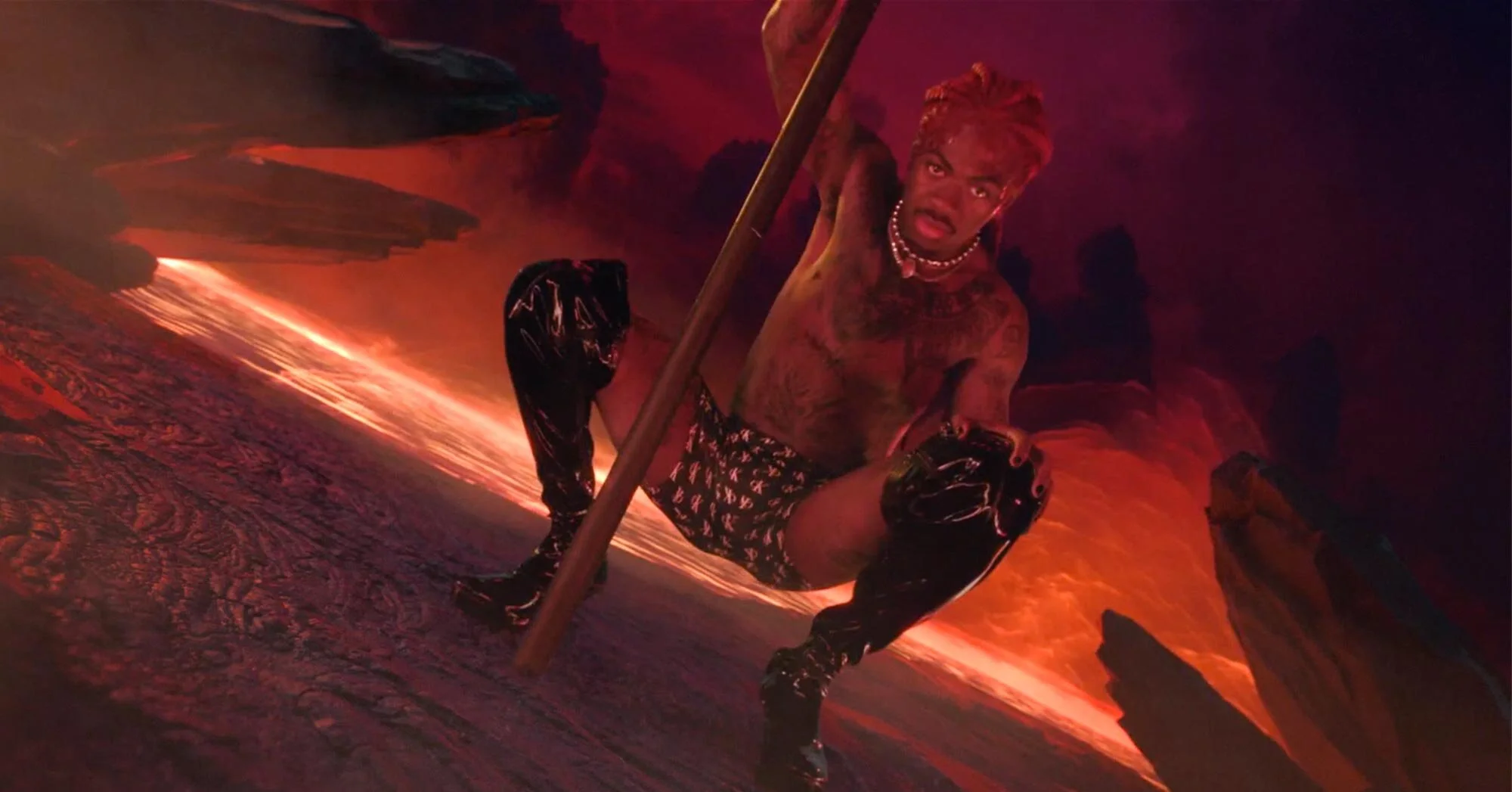The ‘Montero’ Controversy
What do Marist students think?
Source: Screenshot from YouTube
The internet erupted into controversy after the rapper Lil Nas X dropped the music video for his song “Montero (Call Me By Your Name)” which features him pole dancing down to hell and giving the devil himself a lapdance. The rapper has been under fire with criticism from conservative commentators claiming the video glorifies “devil worship” and corrupts young listeners.
So, what do Marist students have to say about the controversy?
“It’s weird but it’s his style,” Averey Homer ‘22 said about the video. Homer, a fan of Lil Nas X, praised the rapper for the interesting concepts and creativity in the music video. She didn’t find anything offensive about the video, explaining how all the visual choices made were all part of the aesthetic and were there to tell a story. “There are other artists out there known to be provocative,” Homer said. “He definitely wasn’t the first.”
Nick Vajtay ‘23 also weighed in on his impressions from the “Montero” video, though he isn’t as much of a fan as Homer: “I wasn’t uncomfortable,” he said. “But it’s just not for me.”
Vajtay raised concerns about how the adult themes in the video could affect Lil Nas X’s younger viewers, an issue that many online commentators have discussed as well. Lil Nas X’s song “Old Town Road” became a smash hit in 2019 in part because of how well the song performed among children.
The rapper Joyner Lucas was one of the people who called Lil Nas X out for this on Twitter. “I think the biggest problem for me is the fact he dont understand “old town road” is every kids anthem. Children love him for that record. They tuned in and subscribed to his channels. So with no disclaimer he just dropped some left field ish & all our kids seen it. Smh,” he said in a now deleted tweet.
Lil Nas X fired back, stating that he sang about drugs and adultery in “Old Town Road,” so that song wasn’t very kid-friendly either.
“If I was a parent, I wouldn’t want my kids listening to it,” said Vajtay, though he added that he still believed artists should be able to decide what type of music they put out. “Who am I to tell him where to go with his music career?”
Marley Gifford ‘22 agreed that artistic freedom is an important part of the conversation surrounding “Montero.” “It’s a music video. I think people should have creative freedom in whatever they do, especially artists.”
Both Gifford and Homer think that the provocative content is simply part of the strategy for making a song blow up in the music industry. The shock and outrage generated a buzz around the video that drew more people in to watch the spectacle.
“I feel like he’s poking fun at being really provocative and really out there and outrageous and wants to piss people off in a way,” Gifford said. Though she also acknowledged why she thinks some people may have been upset about the video.
The ‘Montero’ music video was caught up in much controversy with Lil Nas X's portrayal of the devil. Source: Screenshot from Youtube
“Even me, like I’m not a religious person and I can see where that could get some controversy,” she said, also bringing up another level of the controversy: the “Satan shoes.”
After the song’s release, Lil Nas X started advertising for his “Satan shoes,” which were custom Nike Air Max 97s featuring a pentagram, an inverted cross, and supposedly one drop of human blood. The 666 pairs of shoes only spurred the controversy around Lil Nas X further, leading to a lawsuit with Nike and additional online backlash.
“It could hit sensitive parts for some religious people,” Homer said. “People found it disrespectful in a way.”
Though the provocative imagery in the video and the shoes played a role in the controversy, Homer believes there is a deeper reason why so many conservative critics were up in arms about “Montero.”
“If this was a white straight male or woman I don’t think it would be as much of a controversy,” Homer said. Lil Nas X publicly came out as gay back in 2019, and his experience with his sexuality played a large role in inspiring “Montero.”
“Lil Nas X is somebody who is in such deep contrast to a lot of the people that are in the industry alongside him,” Gifford said. “That definitely puts a target on his back... the fact that he’s a Black, gay man because there just isn’t really somebody like him out there right now.”
Vajtay also agreed that Lil Nas X was receiving more heat because of his unique position in the music industry in the present moment. He doesn’t fit the “cookie cutter” standard that a lot of other celebrities in the media do, but by stepping out of the box he is opening doors for other LGBTQ+ and POC artists. “When someone goes out of that defined territory people get upset.”
Amidst all the uproar about the “Montero” video, Homer pointed out one of entertainment industry’s favorite sayings: “All publicity is good publicity.” Whether people love the music video or hate it, all the attention the conflict garnered is what made the video so successful.
“He’s branding himself as an artist that isn’t very predictable,” Homer said. “That’s why he’s going to stay relevant.”

